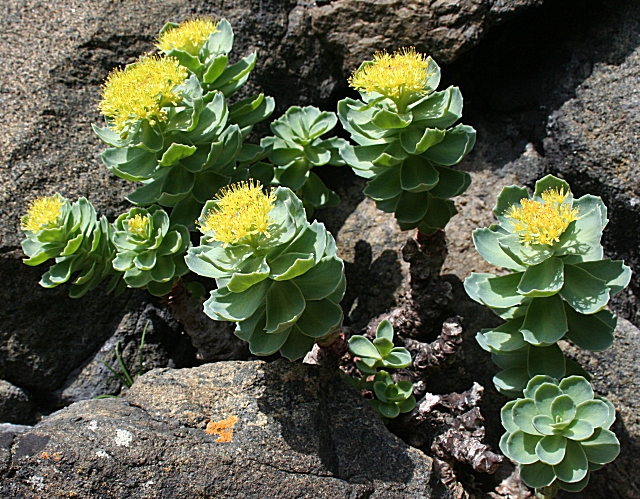Rhodiola Herb Noted by Study as Potential Treatment for Depression
An estimated 19 million Americans suffer from depression with 70 percent of them not responding to initial therapy – can Rhodiola help?
It’s been lauded as nature’s anti-depressant, energizer and as a favorite adaptogen. Adaptogen being the kind of substance that increases the body and mind’s resistance to all kinds of stress. But Rhodiola rosea aka Roseroot hadn’t been taken seriously by medical science until now.
It’s been cherished by Europe as a medicine for centuries and memorialized by Greek history – even revered by vikings for endurance, cutting anxiety before battle, and decreasing fatigue. But North America is just catching up to that rich history. If you research this herb, it will most likely captivate you the way it has captivated the curious-minded for who knows how many millennia.
[do_widget id=text-16]
Indeed, Pennsylvania State researchers put Rhodiola through its first ever randomized, double-blind, placebo-controlled, comparison trial of oral R. rosea extract versus conventional antidepressant for mild to moderate major depressive disorder. A comparison long overdue.
Results of this study were published recently in the journal Phytomedicine led by Jun J. Mao, MD, MSCE, associate professor of Family Medicine, Community Health and Epidemiology and colleagues at the Perelman School of Medicine of University of Pennsylvania.
The study’s 57 adults who participated between 2010 and 2013 were considered MDD via a doctor’s DSM IV Axis 1 diagnosis. The had ” they exhibited two or more major depressive episodes, depressed mood and/or loss of interest or pleasure in life activities for at least 2 weeks, as well as symptoms including significant unintentional weight loss or gain, insomnia or sleeping too much, fatigue, and diminished ability to think or concentrate, and recurrent thoughts of death.”
Then they received 12 weeks of standardized R. rosea extract, sertraline, or a placebo.
A press release notes (emphasis added):
Changes over time in Hamilton Depression Rating (HAM-D), Beck Depression Inventory (BDI), and Clinical Global Impression (CGI) change scores were measured among groups.
Patients who took sertraline were somewhat more likely – as measured by Ham-D scores – to report improvement in their symptoms by week 12 of treatment than those who took R. rosea, although these differences were not found to be statistically significant. Patients taking R. rosea had 1.4 times the odds of improvement, and patients on sertraline had 1.9 times the odds of improvement versus those on a placebo.
 However, patients on sertraline experienced twice the side effects – most commonly nausea and sexual dysfunction — than those on R. rosea: 63 percent versus 30 percent, respectively, reported side effects. These findings suggest that R. rosea may possess a more favorable risk to benefit ratio for individuals with mild to moderate major depressive disorder.
However, patients on sertraline experienced twice the side effects – most commonly nausea and sexual dysfunction — than those on R. rosea: 63 percent versus 30 percent, respectively, reported side effects. These findings suggest that R. rosea may possess a more favorable risk to benefit ratio for individuals with mild to moderate major depressive disorder.
Mao concluded:
These results are a bit preliminary but suggest that herbal therapy may have the potential to help patients with depression who cannot tolerate conventional antidepressants due to side effects,
All things work together for good with this herb. Because it helps the endocrine system, by proxy it is noted for positively affecting weight, moods, sexual function, sleep and mental clarity. Because it balances cortisol levels, this too is another reason some claim it helps with mid-section weight.
It can be golden yellow in a sun shape or red and with a fire-like appearance. Yellow represents the solar plexus chakra which affects digestion, adrenals will power, a sense of self and mental clarity – all things Rhodiola is said to help. Red would be the root chakra affecting the blood and kidneys (also adrenals) plus feelings of being grounded, connected, survival, and self-preservation (important factors for depression). Captivating, giving herb!
After reading about Rhodiola’s effects on the heart, fatigue, nerves, mental clarity, endurance, endocrine system and more – I decided to get this tincture today. I also researched to find this freeze dried capsule form from Siberia, instead of China, although both mountain herbs would most likely be high quality (affiliate links*).
One suggestion for dosage is to start at 100mg per day for seven days and then up it by 100 more milligrams per week, stopping at 400mg or so. Since it is an energizer, it’s best to take in the early part of the day. For some people, it aggravates an anxious feeling. It is thought that if there is a problem with heavy-duty anxiety that those issues might be worked on a bit more before starting this adaptogen. Please consider talking to an herbalist or your preferred health practitioner.
To access the abstract and full study article, please visit: http://authors.elsevier.com/a/1Qer83MpM~M8mB
*these help support the engine of our site at no extra cost to you and the FTC wants you to know -thank you! Health Disclaimer
Heather Callaghan is a natural health blogger and food freedom activist. You can see her work at NaturalBlaze.com and ActivistPost.com. Like at Facebook.








